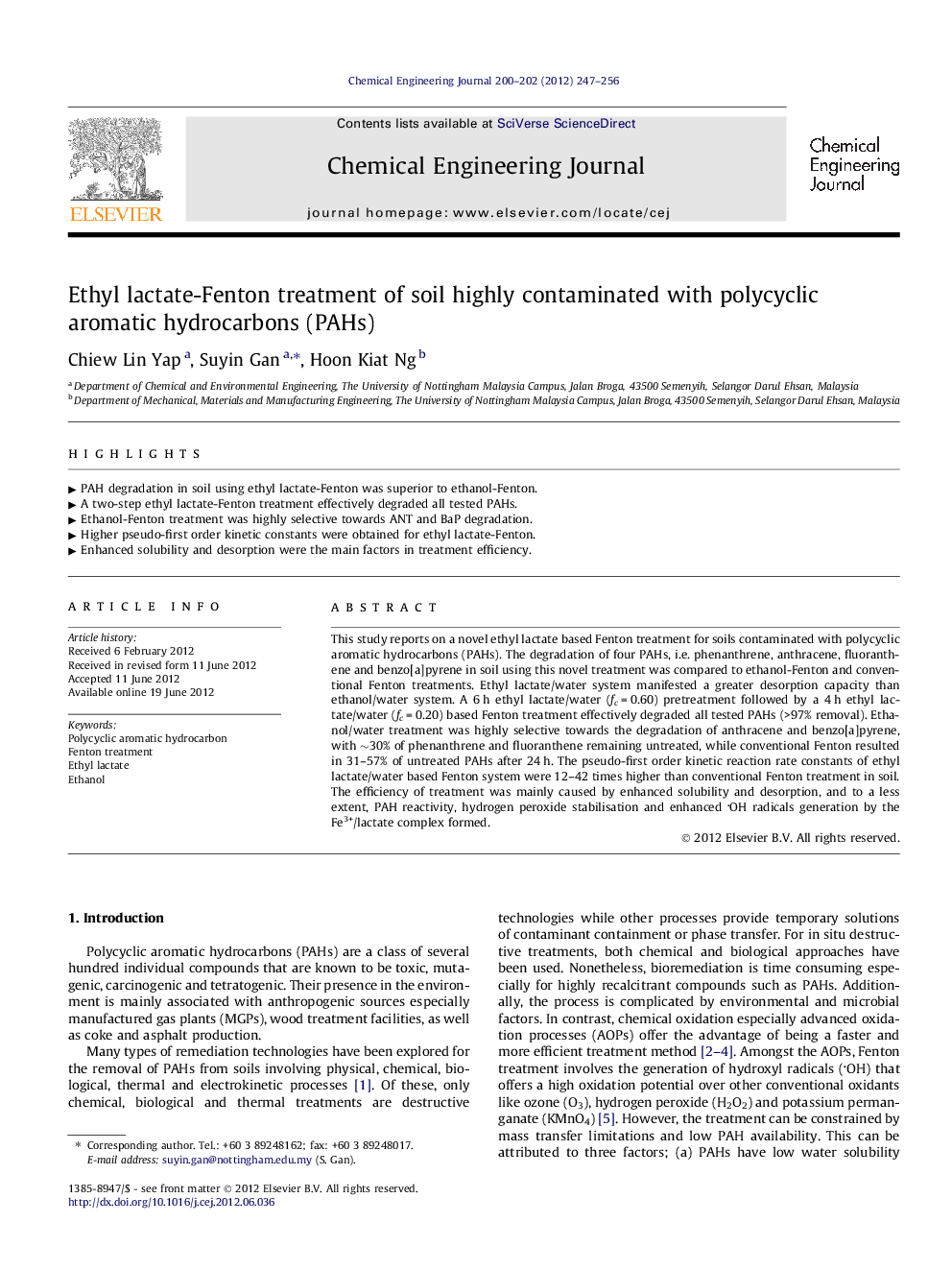| Article ID | Journal | Published Year | Pages | File Type |
|---|---|---|---|---|
| 149551 | Chemical Engineering Journal | 2012 | 10 Pages |
This study reports on a novel ethyl lactate based Fenton treatment for soils contaminated with polycyclic aromatic hydrocarbons (PAHs). The degradation of four PAHs, i.e. phenanthrene, anthracene, fluoranthene and benzo[a]pyrene in soil using this novel treatment was compared to ethanol-Fenton and conventional Fenton treatments. Ethyl lactate/water system manifested a greater desorption capacity than ethanol/water system. A 6 h ethyl lactate/water (fc = 0.60) pretreatment followed by a 4 h ethyl lactate/water (fc = 0.20) based Fenton treatment effectively degraded all tested PAHs (>97% removal). Ethanol/water treatment was highly selective towards the degradation of anthracene and benzo[a]pyrene, with ∼30% of phenanthrene and fluoranthene remaining untreated, while conventional Fenton resulted in 31–57% of untreated PAHs after 24 h. The pseudo-first order kinetic reaction rate constants of ethyl lactate/water based Fenton system were 12–42 times higher than conventional Fenton treatment in soil. The efficiency of treatment was mainly caused by enhanced solubility and desorption, and to a less extent, PAH reactivity, hydrogen peroxide stabilisation and enhanced OH radicals generation by the Fe3+/lactate complex formed.
► PAH degradation in soil using ethyl lactate-Fenton was superior to ethanol-Fenton. ► A two-step ethyl lactate-Fenton treatment effectively degraded all tested PAHs. ► Ethanol-Fenton treatment was highly selective towards ANT and BaP degradation. ► Higher pseudo-first order kinetic constants were obtained for ethyl lactate-Fenton. ► Enhanced solubility and desorption were the main factors in treatment efficiency.
